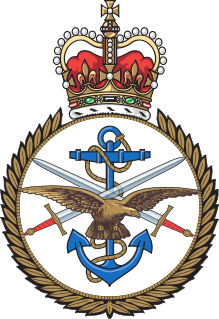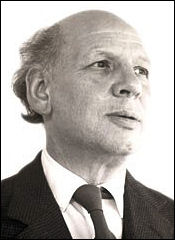Related Research Articles

The British Army is the principal land warfare force of the United Kingdom, a part of the British Armed Forces. As of 2020, the British Army comprises just over 78,880 regular (full-time) personnel and just over 30,020 reserve (part-time) personnel.

Prince Harry, Duke of Sussex, is a member of the British royal family. As the younger son of Charles, Prince of Wales and Diana, Princess of Wales, he is sixth in the line of succession to the British throne.
The Saudi Arabian Armed Forces or SAAF are the military forces of Saudi Arabia. It consists of the Saudi Arabian Army, the Royal Saudi Navy, the Royal Saudi Air Force, the Royal Saudi Air Defense, and the Royal Saudi Strategic Missile Force. The King of Saudi Arabia is the commander-in-chief of the Armed Forces and forms military policy with the Ministry of Defense and the Ministry of Interior. The five Armed Forces are among eight military forces of Saudi Arabia, with the others including the Saudi Arabian National Guard, the Saudi Royal Guard Regiment and Saudi Arabian Border Guards. In addition, there is also the General Intelligence Presidency which is the main intelligence service.

The British Armed Forces, also known as Her Majesty's Armed Forces, are the military services responsible for the defence of the United Kingdom, its overseas territories and the Crown dependencies. They also promote the UK's wider interests, support international peacekeeping efforts and provide humanitarian aid.

The Special Air Service (SAS) is a special forces unit of the British Army. The SAS was founded in 1941 as a regiment, and later reconstituted as a corps in 1950. The unit specialises in a number of roles including counter-terrorism, hostage rescue, direct action and covert reconnaissance. Much of the information about the SAS is highly classified, and the unit is not commented on by either the British government nor the Ministry of Defence due to the secrecy and sensitivity of its operations.

The term artistamp or artist's stamp refers to a postage stamp-like art form used to depict or commemorate any subject its creator chooses. Artistamps are a form of Cinderella stamps in that they are not valid for postage, but they differ from forgeries or bogus Illegal stamps in that typically the creator has no intent to defraud postal authorities or stamp collectors.

The Canadian Army is the command responsible for the operational readiness of the conventional ground forces of the Canadian Armed Forces. As of 2020, the Canadian Army has 23,000 regular soldiers, 19,000 reserve soldiers, for a total of 42,000 soldiers. The Army is also supported by 3,000 civilian employees from the civil service. It maintains regular forces units at bases across Canada, and is also responsible for the Army Reserve, the largest component of the Primary Reserve. The Commander of the Canadian Army and Chief of the Army Staff is Lieutenant-General Wayne Eyre.

Sir Steven Rodney McQueen is a British filmmaker and video artist. He is known for his award-winning film 12 Years a Slave (2013), an adaptation of Solomon Northup's 1853 slave narrative memoir. He also directed and co-wrote Hunger (2008), a historical drama about the 1981 Irish hunger strike, Shame (2011), a drama about an executive struggling with sex addiction, and Widows (2018), an adaptation of the British television series of the same name set in contemporary Chicago. In 2020, he released Small Axe, a collection of five films "set within London’s West Indian community from the late 1960s to the early ’80s".

Arnold Machin O.B.E., R.A. was a British artist, sculptor, and coin and postage stamp designer.

The Howard Government supported the disarmament of Iraq during the Iraq disarmament crisis. Australia later provided one of the four most substantial combat force contingents during the 2003 invasion of Iraq, under the operational codename Operation Falconer. Part of its contingent were among the first forces to enter Iraq after the official "execute" order. The initial Australian force consisted of three Royal Australian Navy ships, a 500-strong special forces task group, two AP-3C Orion maritime patrol aircraft, two B707 Air-to-Air refuelling aircraft, C-130 Hercules transport aircraft and No. 75 Squadron RAAF. Combat forces committed to Operation Falconer for the 2003 Invasion were withdrawn during 2003. Under the name Operation Catalyst, Australian combat troops were redeployed to Iraq in 2005, however, and assumed responsibility for supporting Iraqi security forces in one of Iraq's southern provinces. These troops began withdrawing from Iraq on 1 June 2008 and were completely withdrawn by 28 July 2009.

General Sir Michael David Jackson, is a retired British Army officer and one of its most high-profile generals since the Second World War. Originally commissioned into the Intelligence Corps in 1963, he transferred to the Parachute Regiment in 1970, with which he served two of his three tours of duty in Northern Ireland. On his first, he was present as an adjutant at the events of the Ballymurphy massacre (1971), where 11 unarmed civilians were shot dead by British troops, and then at Bloody Sunday (1972), when British soldiers opened fire on protesters, killing 14. On his second, he was a company commander in the aftermath of the Warrenpoint ambush (1979), the British Army's heaviest single loss of life during the Troubles. He was assigned to a staff post at the Ministry of Defence (MoD) in 1982 before assuming command of the 1st Battalion, Parachute Regiment, in 1984. Jackson was posted to Northern Ireland for the third time, as a brigade commander, in the early 1990s.

An aerogram, aerogramme, aérogramme, air letter or airletter is a thin lightweight piece of foldable and gummed paper for writing a letter for transit via airmail, in which the letter and envelope are one and the same. Most postal administrations forbid enclosures in these light letters, which are usually sent abroad at a preferential rate. Printed warnings existed to say that an enclosure would cause the mail to go at the higher letter rate.

The Military Cross (MC) is the third-level military decoration awarded to officers and other ranks of the British Armed Forces, and formerly awarded to officers of other Commonwealth countries.

The Queen's Royal Irish Hussars, abbreviated as QRIH, was a cavalry regiment of the British Army formed from the amalgamation of the 4th Queen's Own Hussars and the 8th King's Royal Irish Hussars in 1958. The regiment saw active service against insurgents in Aden; during the Indonesia–Malaysia confrontation and during the Gulf War, as well as regular service in West Germany as part of the British Army of the Rhine. The regiment was amalgamated with the Queen's Own Hussars to form the Queen's Royal Hussars on 1 September 1993.

Field Marshal Michael John Dawson Walker, Baron Walker of Aldringham, is a retired British Army officer. Commissioned in 1966, he served in Cyprus, Northern Ireland, and in a variety of staff posts in the United Kingdom until 1984. After being given command of a battalion, he was mentioned in despatches for his service during a second tour of duty in Northern Ireland, this time in Derry, and subsequently served a tour on Gibraltar. He was promoted to brigadier, unusually having never held the rank of colonel, and took command of 20th Armoured Brigade in Germany before becoming I Corps chief of staff.

The Royal Thai Army or RTA is the army of Thailand and the oldest and largest branch of the Royal Thai Armed Forces.
An exchange officer is a commissioned officer in a country's armed forces who is temporarily seconded either to a unit of the armed forces of another country or to another branch of the armed forces of their own country.
The relationship between the Canadian Crown and the Canadian Armed Forces is both constitutional and ceremonial with the Queen of Canada being the Commander-in-Chief of the Canadian Forces and with the Queen and other members of the Canadian Royal Family holding honorary positions in various branches and regiments embodying the historical relationship of the Crown with its armed forces. This modern construct stems from Canada's system of constitutional monarchy, and through its 500 years of monarchical history. The role of the Canadian sovereign within the Canadian Armed Forces is established within the Canadian constitution, the National Defence Act, and the Queen's Regulations and Orders (QR&Os) for the Canadian Forces. This relationship is symbolically represented today through royal symbols such as crowns on military badges and insignia, coats of arms, royal portraits, and the grant of the royal prefix to various military units and institutions.

Colonel Richard Justin Kemp CBE is a retired British Army officer who served from 1977 to 2006. Kemp was an infantry battalion Commanding Officer. Among his assignments were the command of Operation Fingal in Afghanistan from July to November 2003, and work for the Joint Intelligence Committee and COBR.[citation needed] After retiring Kemp co-wrote Attack State Red with Chris Hughes. The book is an account of the 2007 Afghanistan campaign undertaken by the Royal Anglian Regiment, documenting their initial deployment.

The Elizabeth Cross is a commemorative emblem given to the recognised next of kin of members of the British Armed Forces killed in action or as a result of a terrorist attack after the Second World War. It bears the name of the current British monarch, Queen Elizabeth II.
References
- 1 2 3 4 Searle, Adrian (12 March 2007). "Last Post". London: Guardian.co.uk. Retrieved 21 November 2010.
- 1 2 "The new face of remembrance". London: Telegraph.co.uk. 10 November 2008. Retrieved 21 November 2010.
- 1 2 "Queen and Country – The Art Fund". artfund.org. Archived from the original on 3 April 2016. Retrieved 16 March 2017.
- 1 2 Bremner, Charles; Robertson, David. "Why is the Royal Mail blocking McQueen's Queen and Country?". London: Times. Retrieved 21 November 2010.
- ↑ "Support for the project". Artfund.org. Archived from the original on 4 March 2016. Retrieved 21 November 2010.CS1 maint: bot: original URL status unknown (link)